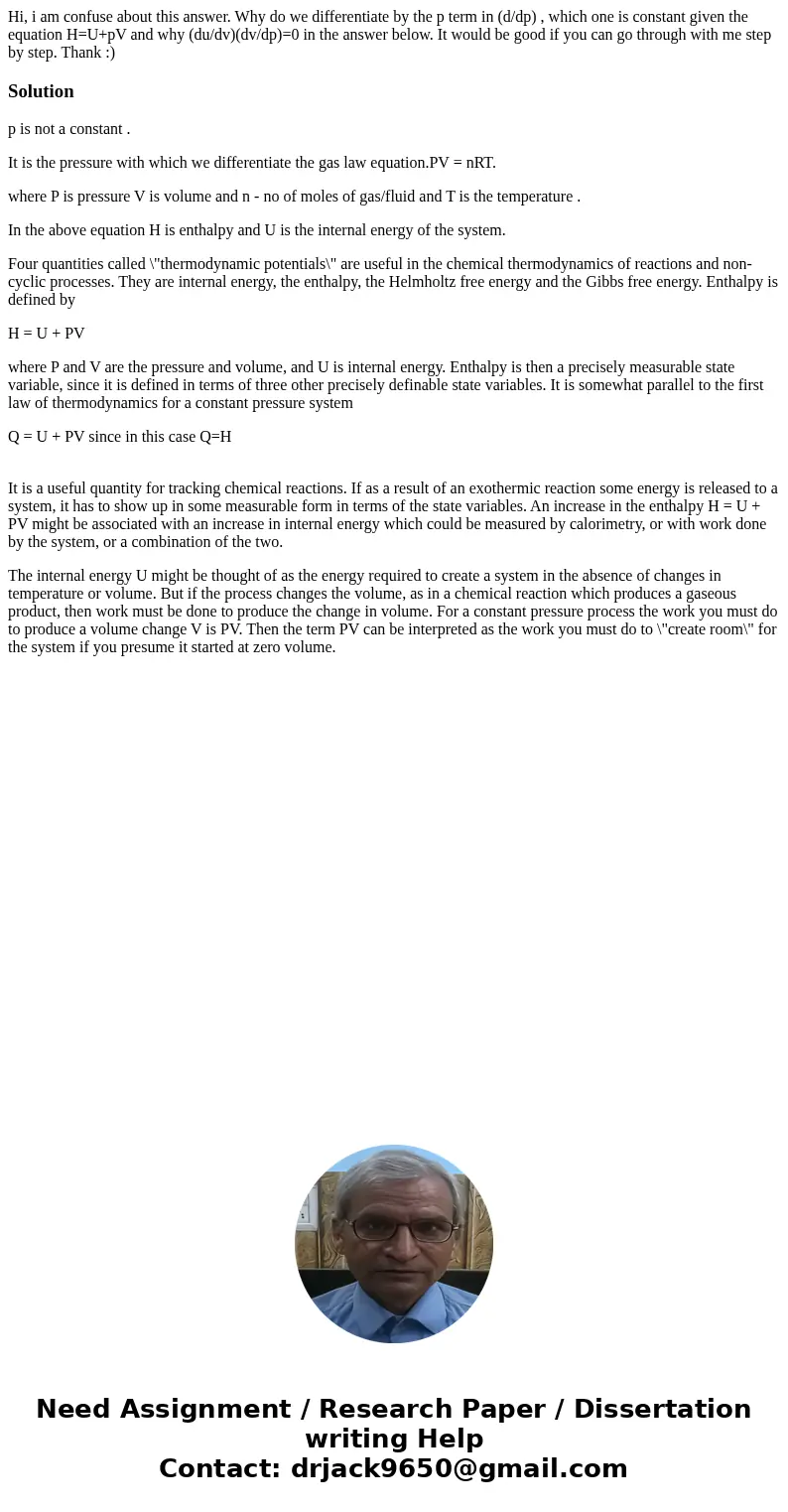Hi i am confuse about this answer Why do we differentiate by
Hi, i am confuse about this answer. Why do we differentiate by the p term in (d/dp) , which one is constant given the equation H=U+pV and why (du/dv)(dv/dp)=0 in the answer below. It would be good if you can go through with me step by step. Thank :)
Solution
p is not a constant .
It is the pressure with which we differentiate the gas law equation.PV = nRT.
where P is pressure V is volume and n - no of moles of gas/fluid and T is the temperature .
In the above equation H is enthalpy and U is the internal energy of the system.
Four quantities called \"thermodynamic potentials\" are useful in the chemical thermodynamics of reactions and non-cyclic processes. They are internal energy, the enthalpy, the Helmholtz free energy and the Gibbs free energy. Enthalpy is defined by
H = U + PV
where P and V are the pressure and volume, and U is internal energy. Enthalpy is then a precisely measurable state variable, since it is defined in terms of three other precisely definable state variables. It is somewhat parallel to the first law of thermodynamics for a constant pressure system
Q = U + PV since in this case Q=H
It is a useful quantity for tracking chemical reactions. If as a result of an exothermic reaction some energy is released to a system, it has to show up in some measurable form in terms of the state variables. An increase in the enthalpy H = U + PV might be associated with an increase in internal energy which could be measured by calorimetry, or with work done by the system, or a combination of the two.
The internal energy U might be thought of as the energy required to create a system in the absence of changes in temperature or volume. But if the process changes the volume, as in a chemical reaction which produces a gaseous product, then work must be done to produce the change in volume. For a constant pressure process the work you must do to produce a volume change V is PV. Then the term PV can be interpreted as the work you must do to \"create room\" for the system if you presume it started at zero volume.

 Homework Sourse
Homework Sourse